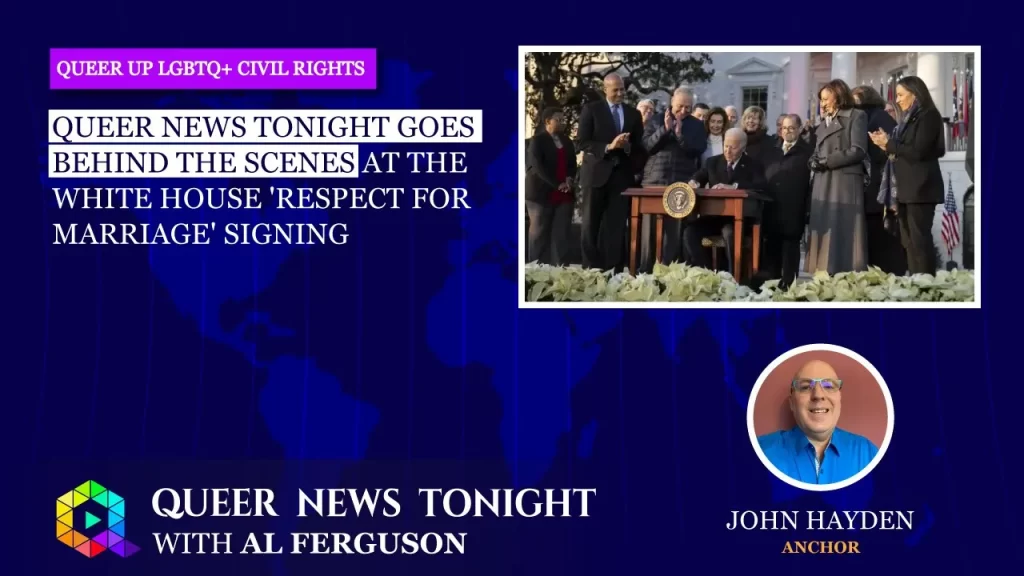Marriage is one of the many forms of celebrating and expressing love. Everyone has a right to love, everyone has a right to express it, and everyone has a right to get married. It is this simple. However, some of us view marriage as a custom accessible to certain types of people and couples only.
There are a lot of stigmas attached to marriage in societies and communities across the world, whether it is in the first world or underdeveloped countries.
Some of these societies have successfully shaken off the prejudiced, narrow perspective towards the custom of marriage, but some are still struggling and fighting over the right definition of marriage. Every society has its methods of dealing with issues, but no society is above the pursuit of happiness of its people.
If god is all and all is god, if we are a part of the same whole, how come some people’s desire to get married is ‘sinful’ and others’ is a ‘gift from god’?
How come only a few are allowed to get married and have a family, and the rest are not?
It is sad to witness the most developed animal on the planet failing to accept the truth of nature in its original form.
The recently passed Respect Of Marriage Act, 2022 sheds some light on such questions and looks at marriage as a custom accessible to all.
According to September 2022 Grinnell College National Poll, 74% of Americans believe same-sex marriage should be a guaranteed right while 13% disagreed and 13% were uncertain.
What is The Respect for Marriage Act?
It is a landmark United States federal law passed by the 117th United States Congress and signed into law by the present president Joe Biden. Experts say The Respect for Marriage Act is narrow but mighty.
The Act builds on Congress’s power to define federal benefits and its constitutionally express power to state “the effects” of acts, records, and judicial proceedings under the Full Faith and Credit Clause. In line with Obergefell and Windsor, it requires states and state actors, and the federal government and federal actors, to respect existing marriages of same-sex couples.
It preempts states from using the “sex, race, national origin or ethnicity” of the married pair as a basis for denying rights, protections, or duties that pertain to or arise from marriage. (sec. 4). Almost by definition, Congress’s concretizing this in federal law is a mighty recognition that the nation demands that marriages of same-sex and interracial couples be accorded dignity and respect.
The Act also creates a private right of action – both for the U.S. Attorney General and for private citizens to file federal court claims and enforce the law.
After the law gets passed, many LGBTQ+ organizations expressed their views and happiness. Janson Wu, GLBTQ Legal Advocates & Defenders (GLAD) issued a statement saying, “This is a joyful day. Millions of couples and their children across the country now have the assurance that their families will continue to be respected by our state and federal governments because President Biden has signed the Respect for Marriage Act into law.”
Why has this law been introduced?
The Clinton-era law was seen by many as an attempt not to alienate conservative voters, shortly after Clinton had allowed gay and lesbian people to serve in the military as long as they were not public about their sexual orientation.
However, since then attitudes toward support for the LGBTQ+ community and gay marriage have improved considerably in the US. With the 2015 landmark Supreme Court judgment in Obergefell v. Hodges, gay marriage was legalized nationwide. Similarly, state laws barring interracial marriages were declared unconstitutional with the court’s Loving v. Virginia judgment in 1967. In both cases, as the US political system is skewed towards more power in the hands of the states, cases came to court due to inconsistencies arising out of different policies at different levels.
For example, in the 1967 case, an interracial couple got married in a state where the practice was legal, but, they were sued for violating state laws when they shifted to another state where their marriage was illegal.
The AP reported the bill has gained “steady momentum” since the Supreme Court’s June decision that overturned Roe v. Wade and the federal right to an abortion, leaving the issue to the states. At the time, Justice Clarence Thomas, in his concurring opinion, had written that the court should also consider overturning other precedents protecting same-sex and interracial unions.
According to the US Census Bureau, there are about 5,68,000 same-sex couples in the country.
What does the bill mean for people who are already married but live in states that ban LGBTQ+ marriage?
LGBTQ+ people who are already married in states with bans would continue to be married. LGBTQ+ people who want to get married in 32 states without equal marriage rights would have to cross state lines to get married, and their home state would have to recognize their union. National LGBTQ Task Force Policy Director Liz Seaton added that many states would likely face tremendous pressure not to enforce their LGBTQ+ marriage bans.
Seaton said, “The vast majority of people in this country support marriage equality.” “Because there are old laws on the books doesn’t mean that the state necessarily has to do anything with them.”
Does this bill have religious exemptions, and what are they?
Similar to the current law, the bill states that churches, mosques, synagogues, and other houses of worship don’t have to perform LGBTQ+ marriages if it goes against their beliefs. The same is true of nonprofits formed for religious purposes. That does not necessarily include religious nonprofits or businesses that formed for other purposes. For example, a charity taking state taxpayer funds would still have to follow state law.
People call the RMA bill historic. Why is that?
Congress has passed only two LGBTQ+ bills in history. In 2009, the legislature passed the Matthew Shepard and James Byrd Jr. Hate Crimes Prevention Act, which increased punishment for crimes motivated by sexual orientation and gender identity, as well as race. That bill came under scrutiny because some found that hate crime laws often end up increasing incarceration among people of color but have shown little evidence of stopping or preventing the violence. The next year, Congress repealed “Don’t Ask, Don’t Tell,” a law that forced LGBTQ+ military service members to conceal their sexual orientation.
The Respect for Marriage Act marks the most significant piece of pro-LGBTQ+ legislation enacted by Congress and an unprecedented show of bipartisan support for queer rights, advocates say.
Almost 40 years ago, Howard and Brad Grossman purchased wedding bands to express their commitment to each other after years of dating. But with same-sex marriage illegal at the time, the gay couple could only mark their partnership through those rings, not with legal documents. There are many couples in the USA who had to go through a similar experience due to a lack of legal protection and provisions.
However, the future looks better for the LGBTQ+ community in the USA. This a commendable and much-needed step that the US government has taken, standing by what the Declaration of Independence fundamentally believes in, “Life, Liberty, and the pursuit of Happiness”


















